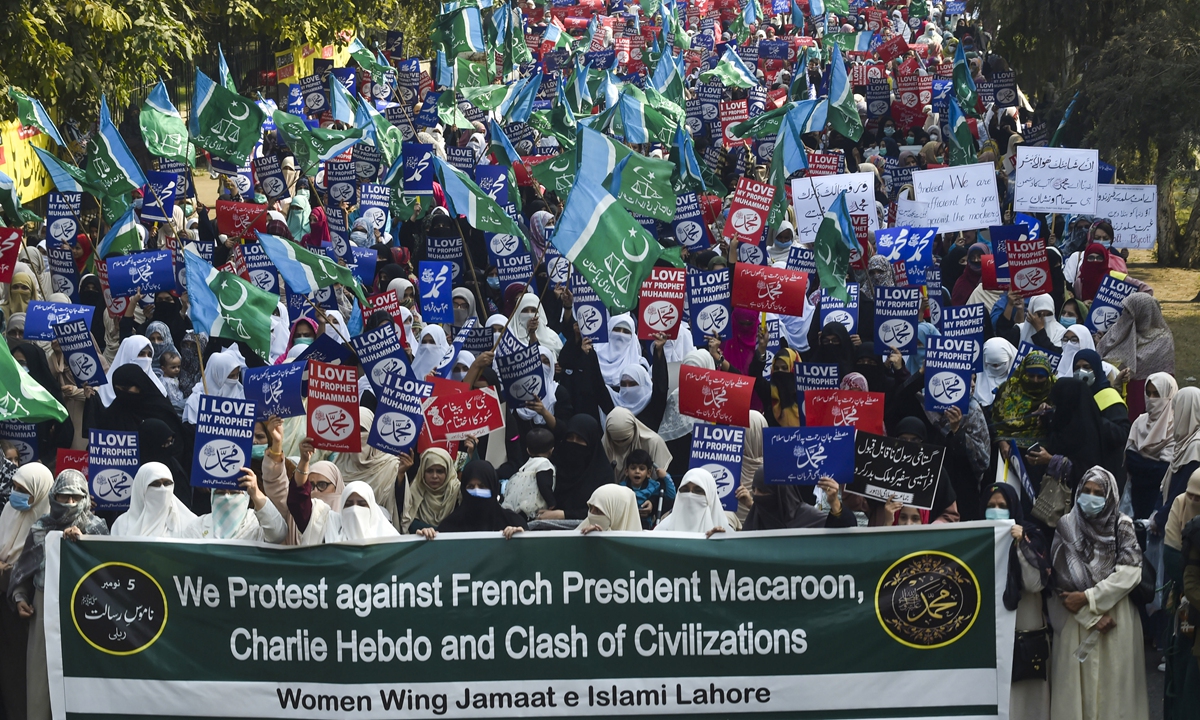French interior minister in Algiers to discuss extremism, illegal immigration
Source: AFP Published: 2020/11/8 16:58:43

Activists and supporters of Jamaat-e-Islami Pakistan take part in an anti-France demonstration in Lahore, Pakistan on Thursday, amid a wave of demonstrations in Muslim countries over French President Emmanuel Macron's defense of the right to publish cartoons of the Prophet Muhammad. Photo: AFP
French Interior Minister Gerald Darmanin arrived in Algeria Saturday to discuss tackling extremism and illegal immigration, in the wake of recent attacks in France.He and his Algerian counterpart will discuss bolstering coordination between the two countries "in a number of areas," according to a statement by Algeria's Interior Minister Kamel Beldjoud.
The North African nation's "valuable expertise" in tackling "terrorism... makes it a strategic partner for France," the French embassy said in Algeria on Saturday.
Darmanin arrived in the capital Algiers after a tour of several Mediterranean countries, including neighboring Tunisia.
The French interior minister is also expected to raise the issue of illegal immigration.
Darmanin's visit to North Africa was scheduled some time ago but took on new urgency after a deadly attack on a church in the French city of Nice late in October.
The suspected attacker, identified as 21-year-old Tunisian Brahim Aouissaoui, had arrived in Europe illegally in September.
As he did in Tunisia, Darmanin is expected to present Algeria with a list of its nationals present illegally in France and suspected of radicalization whom Paris wishes to expel.
Sources close to Darmanin have said that 70 percent of over 230 foreigners illegally in France and suspected of radicalism are from the Maghreb region, which includes Tunisia and Algeria, and from Russia.
According to European border security agency Frontex, more than 6,000 Algerians crossed the Mediterranean in the first eight months of 2020, though some migration experts say the real number is likely to be higher.
AFP